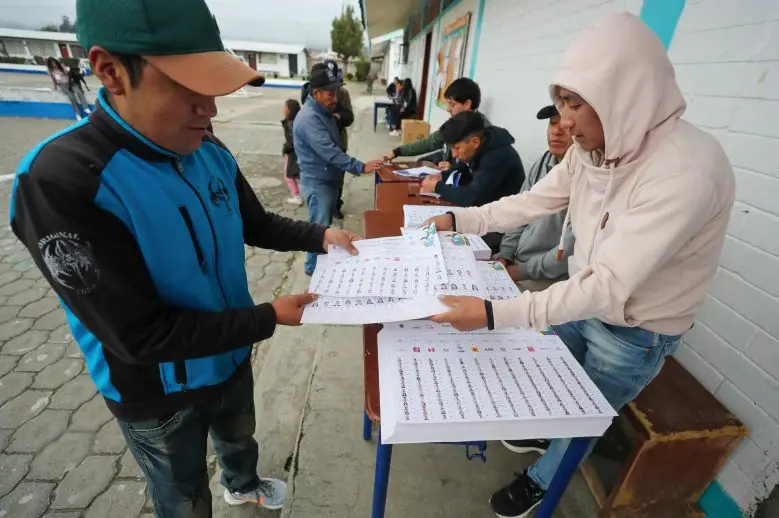Bolivia is living through the final days of a long, chaotic and turbulent electoral process. If we ask when the political parties actually began their campaigns, no one would have a clear answer. More than ever, the Plurinational Constitutional Court and the Supreme Electoral Tribunal (TSE) have (un)defined the political calendar. Since early 2024, a series of judicial controversies have annulled Evo Morales’ candidacy and left the Third System Movement in limbo; the legal status of the Pan Bol party was revoked and the outsider Jaime Dunn was blocked from running due to outstanding debts with the state, despite documentation from the Office of the Comptroller General proving otherwise.
Evo Morales, whose political tenure had to be abruptly halted by a citizen mobilization, is now hiding in the Chapare region after an arrest warrant was issued against him in a human trafficking case that directly implicates him. Nonetheless, this has not stopped the cocalero leader from orchestrating and directing multiple road blockades in an effort to pressure the system and clear the way for his candidacy. These protests have already paralyzed transportation for over 50 days, causing incalculable economic damage. Worst of all, there is no sign that this strategy will come to an end—this is, after all, Morales’ signature style of politics.
Meanwhile, the TSE is undergoing a deep institutional crisis. According to public opinion data from LAPOP, the electoral body has just 26.8% public trust—meaning its most valuable asset, credibility, is severely damaged. Internal conflicts among its members seem less driven by a desire to improve the electoral system and more by disputes over who should be allowed to run for office. At times, basic standards of civility and respect have been discarded: in June 2025, TSE member Tahuichi Tahuichi Quispe publicly called those who filed a criminal complaint against him “donkeys and asses” after he refused to allow Pan Bol and the Frente Para la Victoria to participate in the elections. More recently, the body’s top official, Oscar Hassenteufel, reportedly resigned under political pressure—only for the story to be walked back hours later, with officials claiming he had merely requested medical leave (from which he has yet to recover).
If the polls are even remotely accurate, political fragmentation will once again blow up Bolivia’s already fragile stability. The country faces 39.4% cumulative inflation, the state-owned oil company YPFB is unable to meet internal demand for diesel and gasoline and there is a 100% gap between the official dollar exchange rate and the black market rate.
At the same time, the government has abandoned any semblance of political initiative and seems content to simply run out the clock. On November 8 of this year, President Luis Arce will hand over power to a new administration that—according to the polls—is unlikely to win more than 21% of the vote. That means it will have little political muscle to implement urgently needed shock policies. Such measures, while necessary, would likely spark a wave of public discontent that could severely jeopardize governability.
Today, the country seems to be at the end of a political era—but with no clear future in sight. Although the opposition has captured most of the electorate’s preference, it lacks a political proposal capable of winning over working-class sectors or former MAS voters. Meanwhile, the MAS-affiliated candidates, Eduardo del Castillo and Andrónico Rodríguez, are unable to shed the burden of Arce’s failed government or the lingering influence of Evo’s faction. Rodríguez has dropped to 6% in voter preference and del Castillo has yet to break the 3% barrier.
What does this scenario suggest? An election overseen by a TSE so discredited that rumors of fraud abound. A government that has relinquished control of state affairs. A fractured political landscape where each party may secure a slice of the power pie, but none will have the legitimacy to lead a true anti-crisis agenda.
Taken together, these elements point toward an imminent eruption of tensions that the electoral process will be unable to resolve.
*Machine translation, proofread by Ricardo Aceves.













